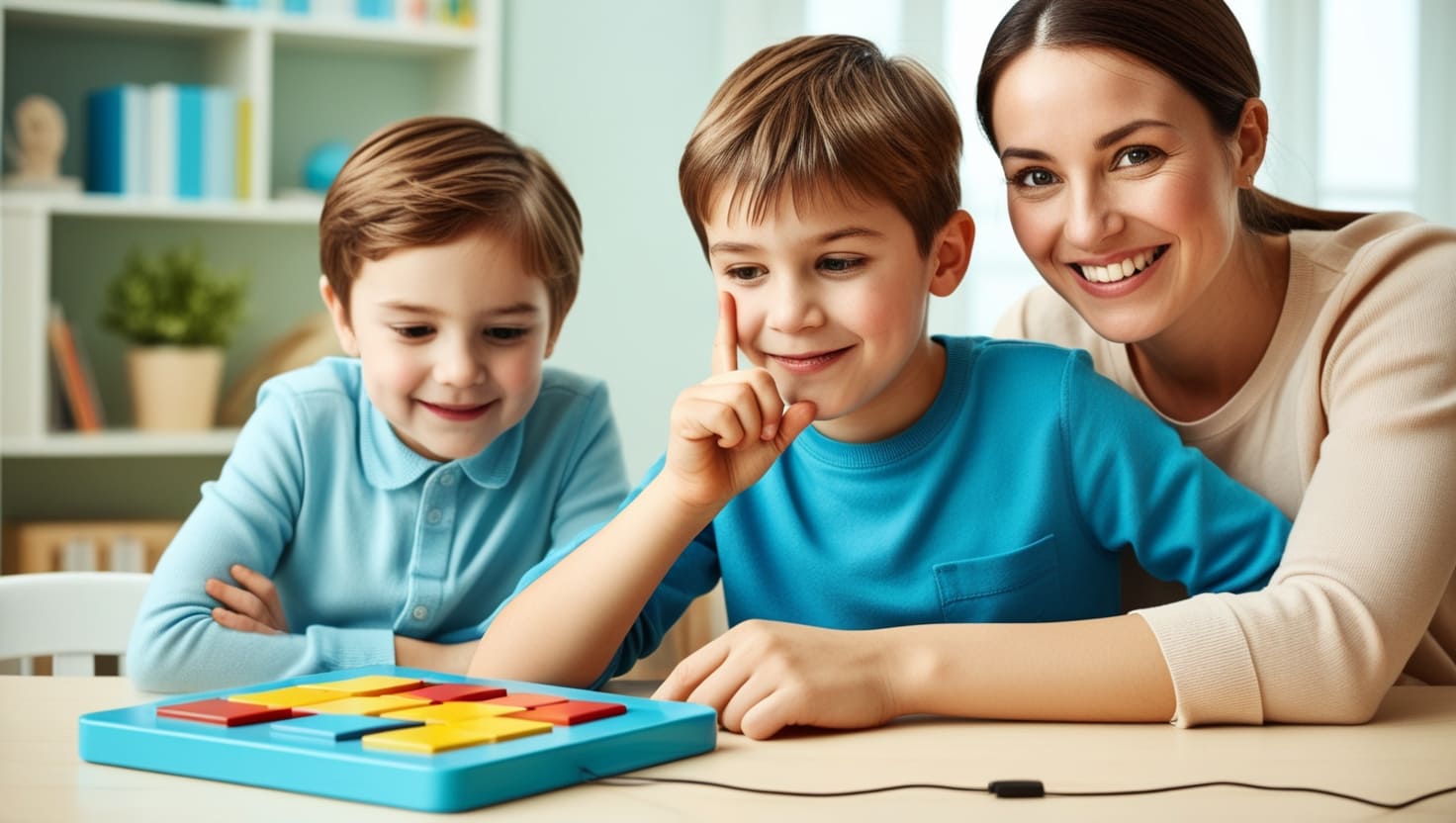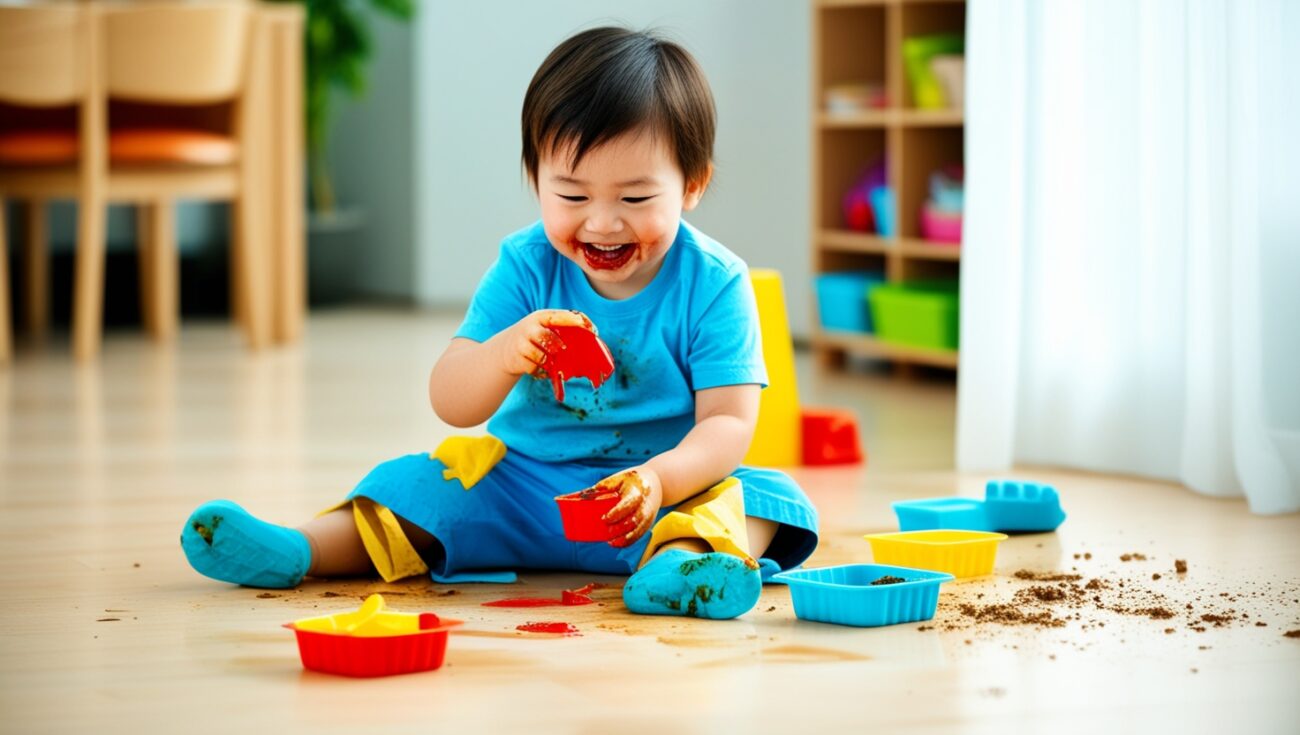Blog
How to Train Your Child in Logical Thinking Skills

Do you want to help your child become a better problem-solver? Logical thinking is a critical skill that supports decision-making, mathematical understanding, reading comprehension, and everyday reasoning. It’s what helps children make sense of the world and tackle challenges with confidence.
In this article, we’ll explore simple yet engaging ways to train your child’s logical thinking through fun activities like questions, games, and real-life situations that spark their curiosity and intellectual growth. With a little encouragement and practice, your child can develop a solid foundation of logical thinking that will benefit them throughout their life.
Tip 1: Ask Open-Ended Questions
One of the most effective ways to nurture logical thinking in children is by encouraging them to think through problems. Asking open-ended questions helps your child build strong reasoning skills and improves their ability to analyze situations.
- Use ‘Why’ and ‘What If’ Questions: Asking open-ended questions like “Why do you think that happened?” or “What if we did it another way?” gets your child to reflect and engage in reasoning. These questions help them explore possible answers and think critically about different outcomes.
- Encourage Explanation: Allow your child to explain their thought process. Even if their answer isn’t correct, it’s important to acknowledge how they arrived at it. This shows that they are processing information and helps them improve their logical reasoning skills.
- Make It Part of Conversation: You can turn everyday moments into mini thinking challenges. For example, when deciding what to wear, you can ask, “What’s the best outfit for today’s weather?” or while solving a small problem, ask, “How can we solve this issue?”
These conversations help make logical thinking a natural part of their daily life.
Tip 2: Play Logic and Thinking Games
Games are an incredible tool to develop logical thinking while keeping things fun and engaging. Children love to play, and by incorporating logic-based games into their routine, you can boost their reasoning skills.
- Puzzles and Matching Games: Simple puzzles, memory card games, and matching games help children practice observation and analysis—key skills for logical thinking. Whether it’s a jigsaw puzzle or a matching game where they have to connect objects, these activities help your child develop focus and problem-solving skills.
- Board Games That Require Strategy: Board games like Connect Four, Guess Who, or even simple games like chess are excellent for teaching strategy and planning. These games require children to think ahead, make decisions, and plan their moves carefully.
- Riddles and Brain Teasers: Introducing age-appropriate riddles or “what comes next” challenges can stretch your child’s thinking. Ask them to solve simple riddles, or play games that involve filling in the blanks or predicting what will happen next. These games stimulate their mind and enhance their ability to make connections between ideas.
By incorporating fun logic games into their routine, you’re helping your child develop critical thinking skills in an enjoyable and interactive way.
Tip 3: Teach Sorting and Classifying
Sorting and classifying activities help children understand categories, similarities, and differences—all of which are essential components of logical reasoning.
- Sort Household Items: Ask your child to help sort items by categories like color, shape, or size. Simple tasks like sorting socks, toys, or kitchen utensils can be turned into logical thinking challenges. You can even ask them to sort by purpose—like grouping cooking utensils and placing them into categories.
- Use Nature Walks: Go on a walk and collect natural items like leaves, rocks, or flowers. Once back home, help your child classify them by type or features such as color, size, or shape. This hands-on activity encourages children to observe and categorize the world around them.
- Use Venn Diagrams for Older Kids: For older children, introduce Venn diagrams to compare and contrast different objects or ideas. This visual tool helps children see the overlapping characteristics between different groups and organize their thoughts logically.
By practicing sorting and classifying, your child will develop a deeper understanding of categorization—an important skill for making sense of complex concepts and improving their reasoning abilities.
Tip 4: Practice Sequencing and Patterns
Recognizing patterns and understanding sequences is a key building block of logical thinking. Helping your child practice these skills will sharpen their ability to think logically and predict future outcomes.
- Use Pattern Blocks or Beads: Create color or shape sequences and have your child continue the pattern. For example, you can make a color pattern like red, blue, red, blue, and ask your child to predict what color comes next. This helps them practice identifying and continuing sequences.
- Daily Sequencing Activities: Encourage your child to think about daily routines in sequence by asking questions like, “What do we do first, next, and last?” during everyday activities or story time. Sequencing routines and stories helps children grasp the concept of order and progression.
- Math with Patterns: Math problems often involve recognizing patterns, such as skip counting or identifying patterns in numbers. Activities that involve counting by twos, threes, or tens also encourage children to think logically about number sequences and mathematical operations.
Pattern recognition and sequencing activities help children practice logical thinking by connecting actions, events, and numbers in an organized manner.
Tip 5: Encourage Trial and Error Thinking
Allowing your child to explore and experiment with different solutions is vital for fostering resilience and developing strong logical problem-solving skills. By embracing trial and error, children learn to think critically and make better decisions over time.
- Don’t Jump to the Correct Answer: Sometimes, it’s tempting to jump in and correct your child immediately, but allowing them to struggle a bit is part of the learning process. Struggling with a problem helps them learn how to solve it logically and independently.
- Ask Reflective Questions: After your child makes a mistake, ask reflective questions like, “What could we try next?” or “Why do you think that didn’t work?” This approach helps them think critically about the problem-solving process.
- Celebrate Effort and Thinking: Praise the effort and thought process, not just the final result. Encourage your child by saying things like, “I love how you figured that out!” or “Great job thinking through that problem!”
Trial and error teach children that mistakes are part of the learning process and gives them the confidence to approach challenges logically.
Logical thinking isn’t an innate skill that children are born with—it’s a skill that grows with practice, play, and guidance. By asking open-ended questions, playing logic games, encouraging problem-solving, and exploring patterns together, you are helping your child build a strong foundation for critical thinking that will serve them well for life.
Keep the learning fun, stay patient, and celebrate each step along the way. With your support, your child will develop the logical reasoning skills necessary to thrive in school and beyond.











